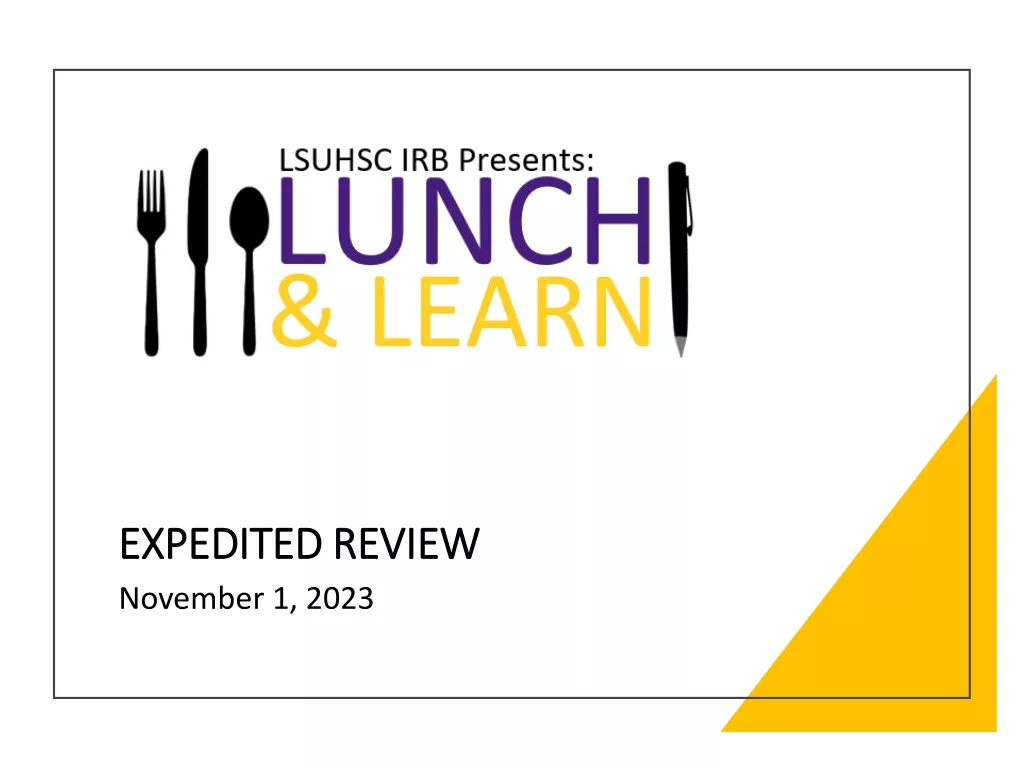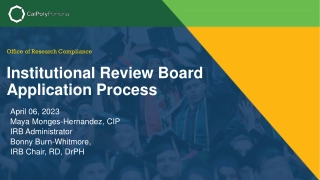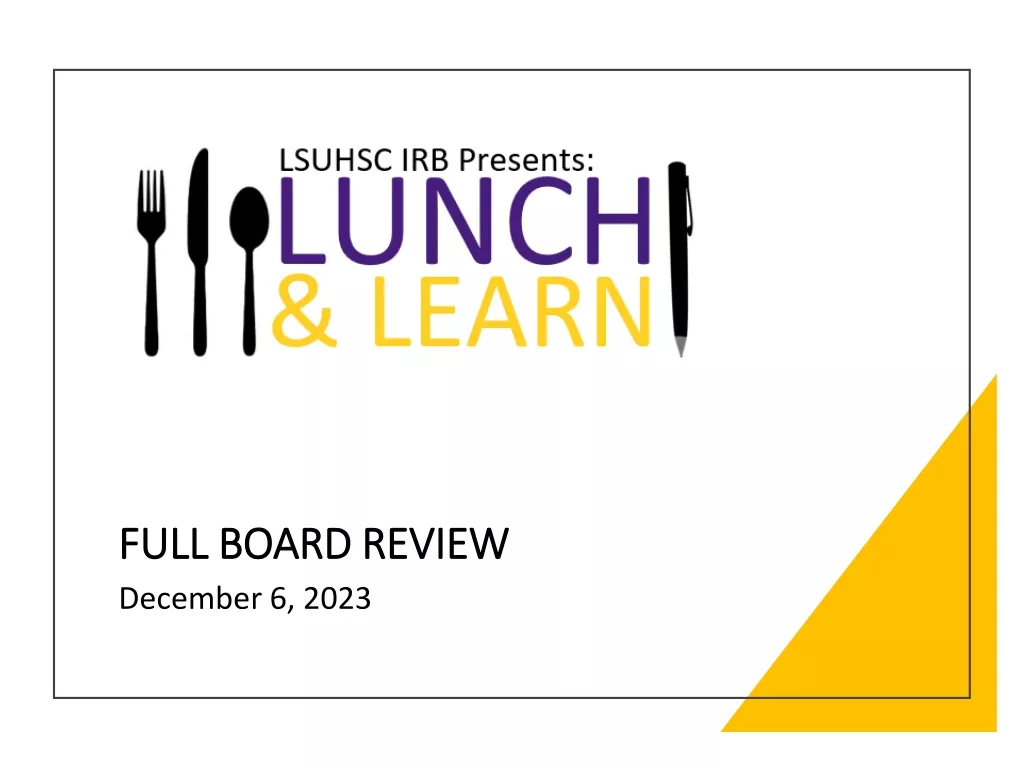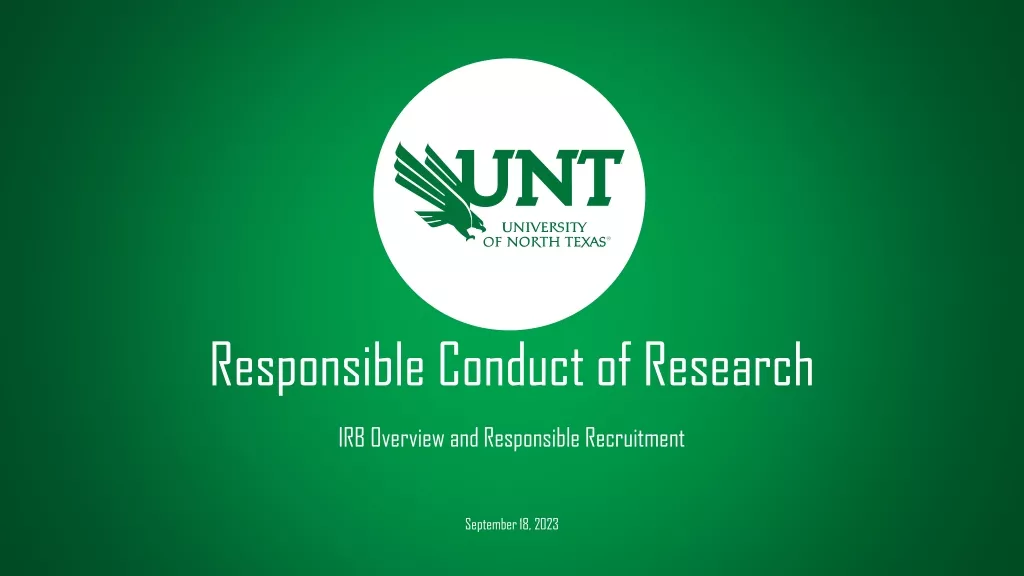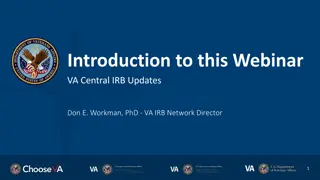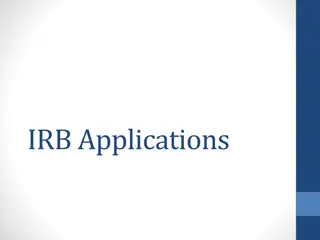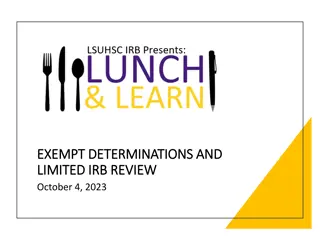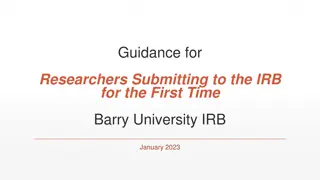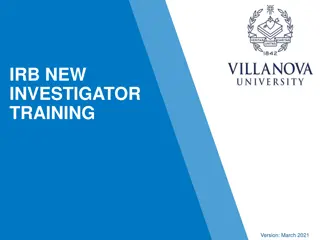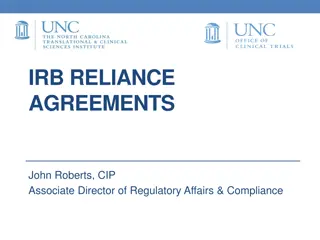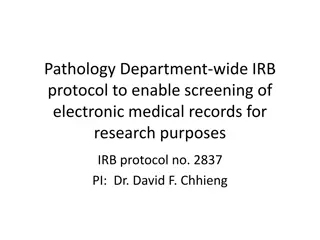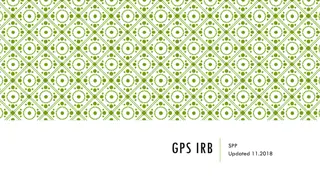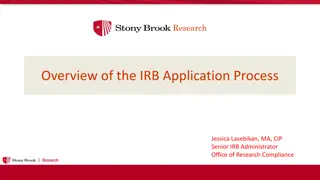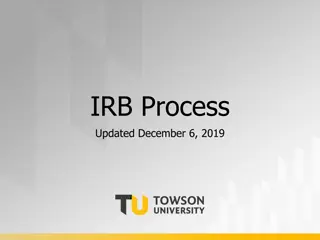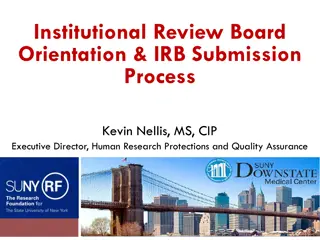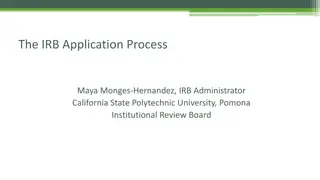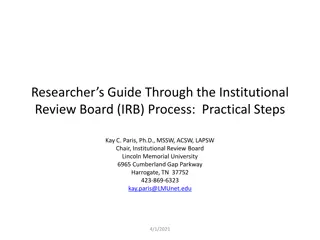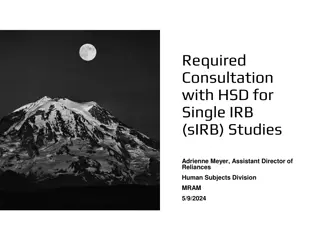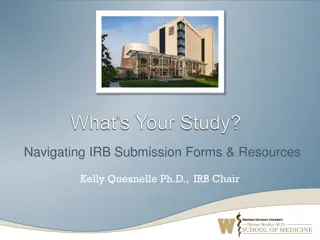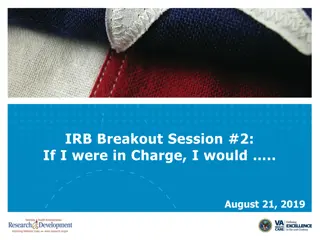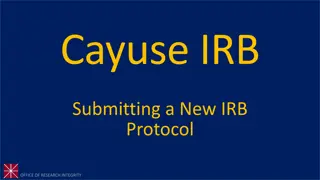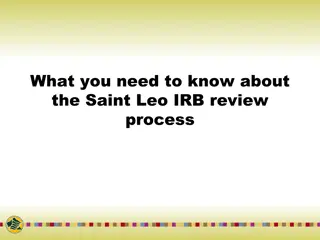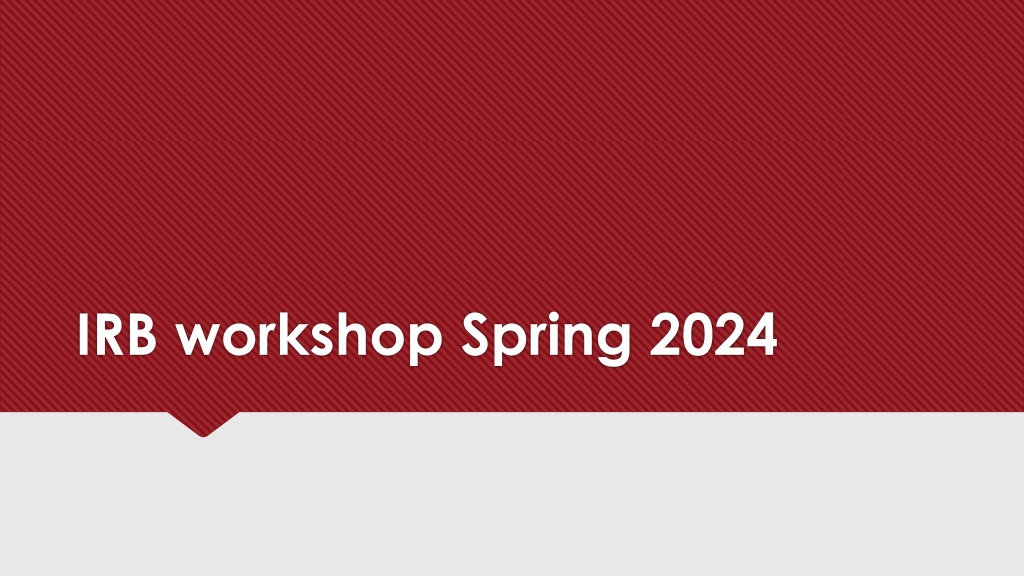
Scholarly Activities Not Requiring IRB Approval
Explore the various scholarly activities that do not require IRB approval, including examples of non-research areas and educational activities solely for training purposes. Understand the criteria set by the Office for Human Research Protections and the distinctions between research and non-research endeavors.
Download Presentation

Please find below an Image/Link to download the presentation.
The content on the website is provided AS IS for your information and personal use only. It may not be sold, licensed, or shared on other websites without obtaining consent from the author. If you encounter any issues during the download, it is possible that the publisher has removed the file from their server.
You are allowed to download the files provided on this website for personal or commercial use, subject to the condition that they are used lawfully. All files are the property of their respective owners.
The content on the website is provided AS IS for your information and personal use only. It may not be sold, licensed, or shared on other websites without obtaining consent from the author.
E N D
Presentation Transcript
Agenda Activities that don t require IRB approval Considerations and guidelines student projects without IRB approval Exempt, expedited, or full board review? Recruiting own students to participate in research Handling audio and video data Raffles as incentives for research participation
Scholarly activities that dont require IRB IRB review is required for projects that meet both the federal (Office for Human Research Protections) definitions of (1) research and (2) human subjects.
Scholarly activities that dont require IRB Office for Human Research Protections (OHRP) definitions: Research = systematic investigation, including research development, testing, and evaluation, designed to develop or contribute to generalizable knowledge. Systematic: Involves method/plan for gathering information, testing hypotheses Generaizable knowledge: Intend to apply findings to population beyond the study participants or otherwise disseminate the findings to develop knowledge beyond the particular study
Scholarly activities that dont require IRB Examples of non-research: Focus directly on the specific individuals that provide the information: Journalistic activities, biography, literary criticism, legal research Public health surveillance activities for public health authorities to monitor and track outbreaks Collection and analysis of information or records for a criminal justice agency for activities authorized by law or court order for criminal investigative purposes Institutional assessment of a program Educational activity for training
Scholarly activities that dont require IRB Educational activities The sole purpose of the research activity is for training students (e.g., teach physiology students how to draw blood/conduct blood cell count; teach research methods students how to conduct ethnography) Findings are not shared outside the educational context (e.g., only shared with classmates, course instructor, program evaluation, etc.)
Scholarly activities that dont require IRB Non-Human Subject determination https://www.chapman.edu/research/integrity/irb/forms-and- instructions.aspx
Student project without IRB approval Use the checklist and student-instructor agreement available here: Guidelines for Student Classroom Projects and Research Involving Human Subjects https://www.chapman.edu/research/integrity/irb/policies.aspx
Student project without IRB approval Remember: Data that have already been collected will NOT receive retroactive IRB approval Instructor/student cannot ever publish results (no presentation at the CU student symposium; CU commons; social media). Apply the same ethical principles. Take advantage of our templates and forms (e.g., recruitment, consenting) Instructor and student sign an agreement (no need to submit it to the IRB)
What type of review? Exempt Category 1 Research in Educational Settings Category 2 Tests, Surveys, Interviews, Observation of Public Behavior Can include verbal and written responses or audiovisual recording Category 3 Benign Behavioral Intervention Can include verbal and written responses or audiovisual recording Category 4 Secondary Research for which consent is not required Category 5 Public Benefit/Service Programs Category 6 Consumer Acceptance Taste and food quality
What type of review? Expedited Category 1 - Drugs or devices not needing investigational new drug or device exemptions. Category 2 - Venipuncture blood from ambulatory non-pregnant adults Category 3 - Collection of biological specimens by noninvasive means (hair, excreta, etc.). Category 4 - Recording data from adults by non-invasive clinical procedures (e.g., weight) and moderate exercise by healthy volunteers. Category 5 - Study of existing data, documents, records, or specimens. Category 6 - Study of voice, video, digital, or image recordings Category 7 - Research on individual or group characteristics or behavior (including, but not limited to, research on perception, cognition, motivation, identity, language, communication, cultural beliefs or practices, and social behavior) or research employing survey, interview, oral history, focus group, program evaluation, human factors evaluation, or quality assurance methodologies.
What type of review? Full Board Reviews Greater Than Minimal Risk Studies
What type of review? Collaboration with another institution IRB of record and reliance agreements
Recruiting ones own students Potential for coercion or appearance of coercion Always preferable to recruit from another faculty s class
Recruiting ones own students When the nature of the study requires recruitment from one s own class, minimize potential of coercion: Collect data after the semester ends Collect data in a manner that makes it clear that the instructor is not aware of the identity of participating students Another team member handles recruitment and consenting Anonymous/de-identified data collection
Audio and video recording Consenting Include an additional signature box in the consent form Detail how the recordings will be used, who can access them, until when are they retained
Audio and video recording Protocol should detail: Data storage Prefer cloud over portable devices Encryption and password protection Data retention A timeline for de-identification and destruction Data sharing Share links, not files
Using Raffles as an Incentive A raffle is governed by lottery laws in CA Workaround: Participation in the raffle is not connected to solicitations of participation in the study, and this is made clear to all participants Indicate chances of winning
Thank you! Thank you! irb@chapman.edu

